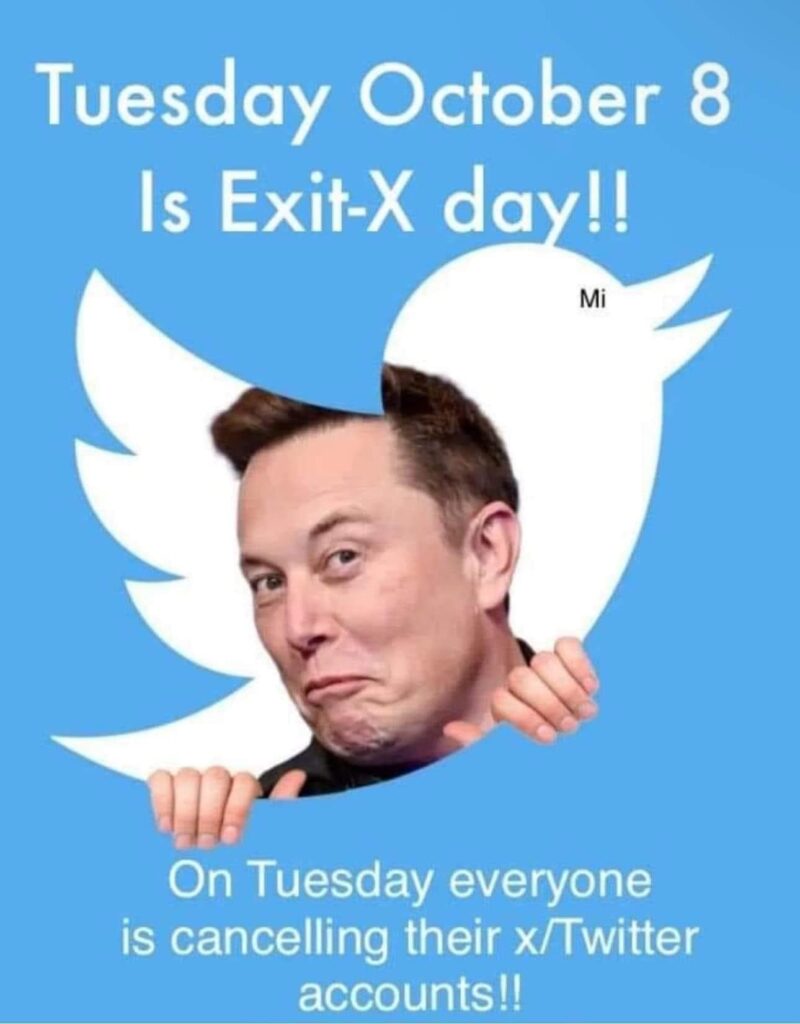In recent years, the digital landscape has witnessed the rise of various online communities, but few have made as significant an impact as Black Twitter. Black Twitter refers to a cultural online community and social media movement primarily centered on Twitter, where users discuss topics relevant to the Black community, including social justice issues, cultural commentary, humor, and current events. It often amplified voices and perspectives that may have been overlooked in mainstream media and served as a space for activism, sharing personal stories, and building solidarity. The community is known for its wit, creativity, and impactful use of hashtags to raise awareness and drive conversations on a variety of social issues. In a recent discussion on Pop Culture Happy Hour hosted by Aisha Harris, the importance and evolution of this vibrant online space came into focus.
At its core, Black Twitter serves as a “watering hole,” she states, for the Black community, a place where individuals can come together to share jokes, express frustrations, and engage in meaningful conversations. Aisha highlights how this platform has been pivotal for discussions about everything from beloved television shows like “Scandal” to pressing social justice issues. As a space where laughter meets activism, memes, and serious commentary coexist, reflecting the multifaceted nature of Black identity.
Black Twitter is not just a collection of tweets; it embodies a unique state of mind and a sense of belonging. For many, it represented a shared experience—a virtual meeting ground where voices that are often marginalized in traditional media could be amplified. A space where users found solidarity, comfort, and strength, as they collectively processed cultural moments and societal challenges.
The global reach of Black Twitter cannot be underestimated. The Hulu docuseries, “Black Twitter: A People’s History,” sheds light on just how powerful this community had become, influencing everything from popular trends to social movements around the world. It is a testament to how a simple platform can foster a cultural phenomenon that transcends geographical boundaries.
However, the loss of Black Twitter’s influence is now being closely examined, as its core culture has been permanently changed by the new policies and direction implemented under Elon Musk’s ownership of the platform.

On Tuesday, October 8, 2024, a grassroots movement, dubbed “Exit-X Day,” called for users to delete their X (formerly Twitter) accounts en masse in protest of Elon Musk’s leadership. Since Musk’s takeover of Twitter, many users have voiced their dissatisfaction with the platform’s direction. Social media posts reveal a chorus of individuals who decided to leave the site after Musk’s acquisition, signifying that a significant portion of the user base associates his leadership with negative changes. Comments like “I left when Musk bought it” echo a common theme: a call for change in the platform’s leadership and policies. While this movement symbolizes a broader discontent with the platform, the real loss lies in the decline of a significant space for Black Twitter—a community that has had a tremendous impact on social justice movements, cultural discourse, and activism.
Many users and critics fear that Musk’s ownership of X is a deliberate attempt to undermine Black Twitter’s influence and expression. For instance, movements such as #BlackLivesMatter gained traction largely through grassroots discussions and campaigns energized by Black Twitter users. Changes in content moderation policies, algorithm adjustments, and the introduction of new monetization strategies are seen as mechanisms that cater to a wider audience, potentially sidelining Black Twitter.
Concerns arose when Musk implemented policy changes that critics viewed as beneficial to hate speech and misinformation. For many members of Black Twitter, this rise in harmful discourse feels like a direct assault on the safe spaces they had cultivated over the years. As a result, many believe that Black Twitter is being targeted in a calculated manner, losing its platform amidst a broader strategy that favors extremist content.In essence, “Exit-X Day” embodies a significant response to user dissatisfaction with the culture and governance of X under Elon Musk. As users opt to leave the platform, there is an undeniable void being created in terms of advocacy and visibility for social justice issues, which leads to several significant repercussions:
The absence of Black Twitter weakens the visibility of critical social justice issues within mainstream conversations. Without a robust space to discuss and promote these topics, crucial narratives may be sidelined or ignored.
As users migrate away from Twitter, they may disperse to various other platforms, which can lead to fragmentation. This separation can dilute the strength of collective action that made Black Twitter so effective, as energy and resources are spread thin across multiple networks.
The ability of Black Twitter to sway public opinion, garner media attention, and mobilize support for social justice initiatives is diminished when its members are scattered and less engaged. There is strength in numbers, and without a united front, the impact of these voices is significantly weakened.
Black Twitter has served as a repository for cultural memory, humor, and shared experiences. Leaving the platform means losing a unique archive of cultural moments that resonate deeply within the Black community, which can undermine the historical context of social justice movements.
While the mass movement away from Twitter reflects a broader discontent with its direction, the real loss is the erosion of a powerful platform where Black Twitter has historically impacted social justice movements. As community members seek alternative spaces, it is crucial to recognize what is being sacrificed: a collective voice that has fostered awareness, advocacy, and change.
As the dialogue surrounding the future of social media continues, stakeholders—including social media companies, activists, and users—must contemplate how to rebuild and reimagine spaces that uplift and ensure that the discourse around social justice remains vibrant and accessible. The loss of Black Twitter on a platform like X is not just a matter of changing online spaces; it represents a critical turning point that may alter the trajectory of social justice advocacy for years to come.

Leave a Reply